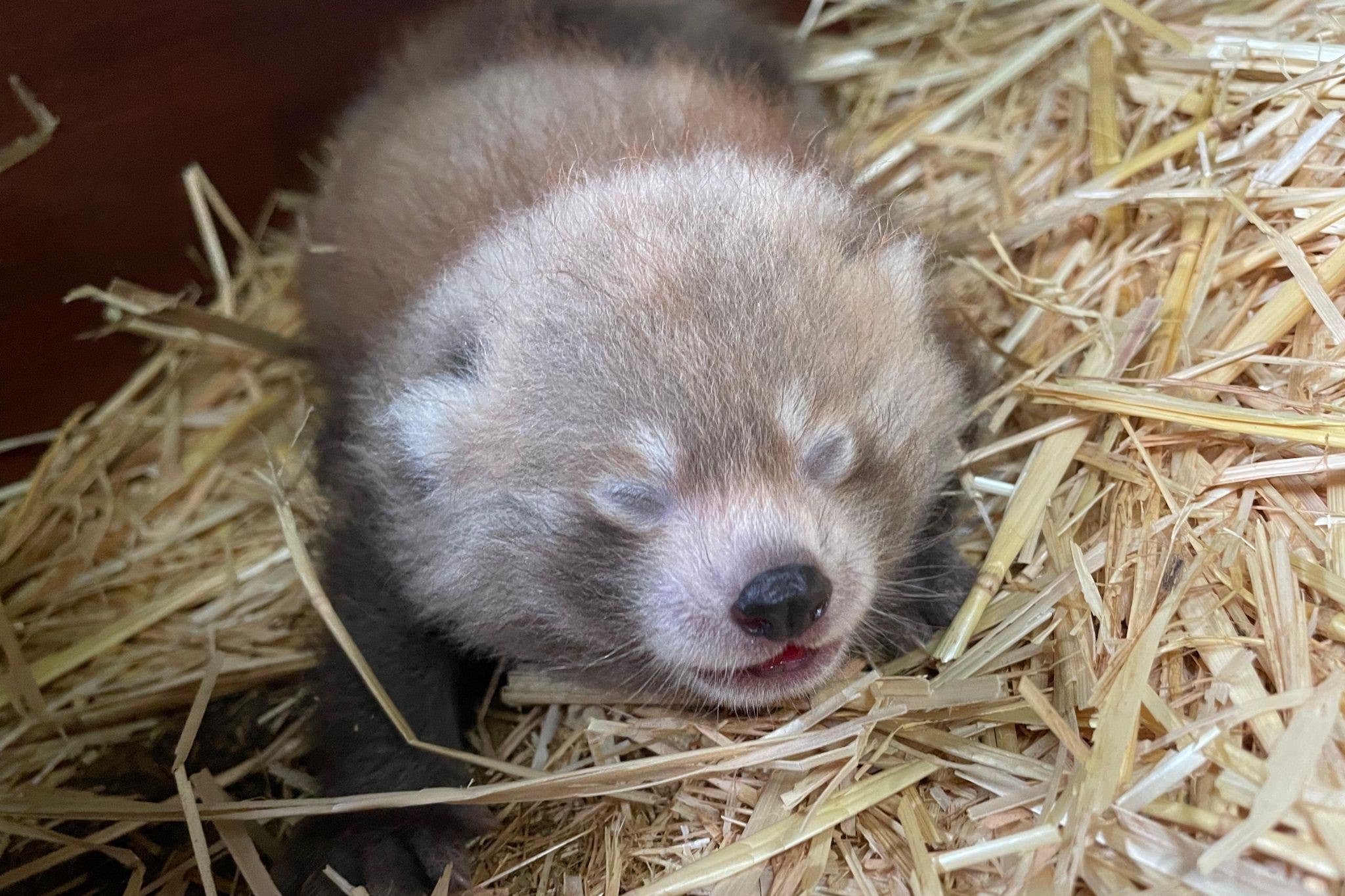Birth of twin red panda cubs at Whipsnade Zoo offers hope for endangered species
The WWF predicts that the number of red pandas left in the wild could be as low at 2,500.

The birth of twin red panda cubs at Whipsnade Zoo offers “double hope for the species” whose existence is under threat, the Zoological Society of London (ZSL) has said.
ZSL announced the birth of the twins, which were born at the conservation zoo on Sunday 25 June to mum Ruby and dad Nilo, and are to be named after their first vet visit at eight weeks.
The pair, whose sex is yet to be determined, each weighed just 113g at birth, and are yet to venture out from the nest, where zookeepers say they are being well cared for by their parents.
Zookeepers suspected that Ruby was pregnant for the first time and endeavoured to make her comfortable.
Zookeeper Grant Timberlake said: “We were ecstatic when we spotted her curled up in one of the nesting boxes we had prepared, using her bushy red tail to keep the two cubs warm.
“Ruby has been doing an incredible job feeding and caring for the twins, so we’re leaving the family to bond together, only checking in on them when she pops outside to eat.”
With a declining population due to illegal trade, poaching and deforestation, the birth of the babies – whose species originates in the Himalayas and Western China – is of international significance. The WWF predicts that the number of red pandas left in the wild could be as low at 2,500.
“These twin cubs give us double hope for the species, as they were born as part of an important European breeding programme for endangered red pandas, designed to keep a backup population safe in conservation zoos – while we tackle the issues they’re facing in the wild,” Timberlake explained.
Bookmark popover
Removed from bookmarks